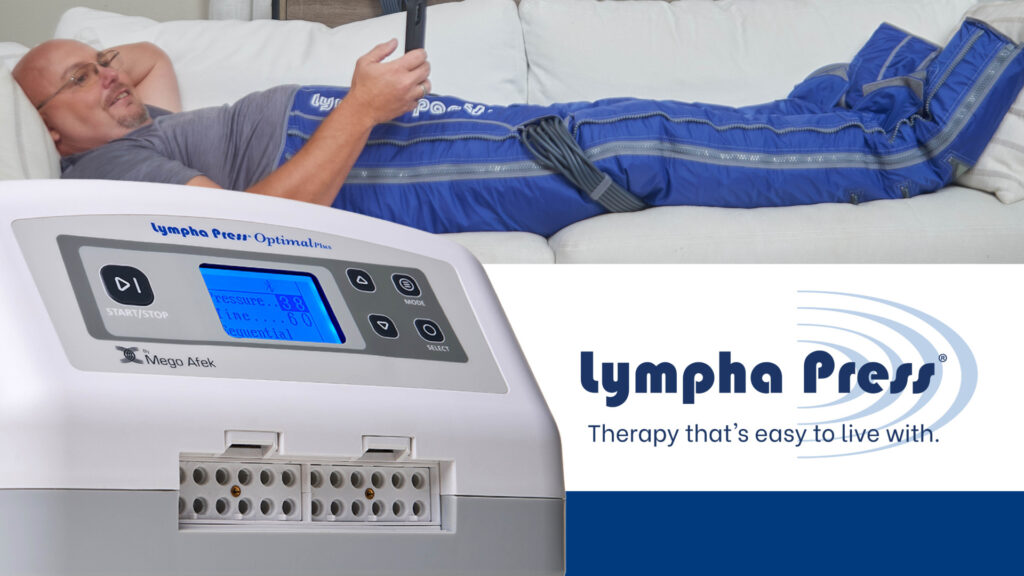Lympha Press is proud to partner with the National Alliance on Mental Health to raise awareness about resources available to help you.
Confidential Peer Support
Sometimes it helps just having a peer to listen. Other times, having professional mental health support is essential. In spite of this, many health care professionals are reluctant to reach out for professional support. It may be due to concerns over what a colleague might think, or even because of a potential risk to their medical license. When you work hard to support the health of other people, it may be difficult to accept that you need support too. However, everyone needs support sometimes. As accustomed as you may be to the demands of your job, there are many aspects of your work that can have a negative impact. When other forms of self-care and support aren’t enough, professional support can help.
Professional support that protects your privacy is available, and your mental well-being is important. You can access these services without concern for your career, and they are staffed with culturally-competent professionals – people who understand your line of work. Find the one that is right for you.
- Therapy Aid Coalition provides pro-bono therapy for frontline health care professionals, including individual and group support.
- The Emotional PPE Project connects health care professionals with licensed mental health professionals who can help. This service is free and does not require insurance.
- The Battle Within provides free therapy to medical personnel, first responders, and veterans. Private therapists are available to work with individuals in crisis, or who are experiencing grief, anxiety, stress or trauma.
- 911 At Ease International provides access to free trauma-informed counseling for frontline responders and families, including first responders and emergency medical personnel.
- You can also contact the NAMI HelpLine Monday through Friday between 10 am and 10 pm ET at 800-950-NAMI (6264) to access confidential support and resource referrals.
- PeerRxMed is a free peer-to-peer program for physicians and other health care professionals. PeerRxMed offers support, connection, encouragement, resources, and skill-building for optimal well-being.
- Physician Support Line helps physicians and medical students navigate personal and professional challenges through a volunteer network of psychiatrists.
- American Academy of Experts in Traumatic Stress offers online support groups for emergency responders and health care professionals.
- Safe Call Now includes trained peer advocates who can provide assistance, resources, and support for any public safety or medical personnel and their families.
Other Resources to Consider
Having resources to share with others is important. Resources can be useful in different ways for everyone, so we encourage each individual to explore options and build a resource toolkit of your own.
- JAMA Network presents articles on professional well-being.
- American Academy of Family Physicians includes resources on putting physician health first.
- The American College of Emergency Physicians (ACEP) shares mental health resources and a wellness guide for emergency physicians via the ACEP Wellness Section, a group dedicated to research on wellness issues, peer support and other relevant topics.
- ACEP Frontline Podcast talks to Dr. Darria Long Gillespie about “Mom Hacks” she’s learned as an emergency room physician and mother.
- RN to MSN presents a Nurse Mental Health Guide with resources for the nursing profession.
- American Medical Women’s Association has an initiative to help reframe mental health licensure questions.
- The Moral Matters podcast looks at moral injury and focuses on solutions and the growing need for change.
- Osmosis Nursing Resilience Course helps participants recognize, understand, and cope with stressors in (and outside of) the nursing environment. This free course for nurses was developed with #FirstRespondersFirst, and offers 3.75 continuing education credits.
- The National Academy of Medicine has resources to support health care professionals.
- American Medical Association offers information on physician well-being.
- The Schwartz Center offers information, tips, and resources for health care professionals.
- Heroes Health is a free mobile app from the UNC School of Medicine. It helps health care professionals and first responders monitor their mental health and gain access to mental health resources.
- American Nurses Foundation Well-Being Initiative offers tools and resources to support the mental health and resilience of all nurses.
- Mental Health America
- Substance Abuse and Mental Health Services Administration (2014) SAMHSA’s Concept of trauma and guidance for a trauma-informed approach. HHS Publication No. (SMA) 14-4884.
Healthcare Leadership Resources
- The Dr. Lorna Breen Heroes’ Foundation provides a Licensure and Credentialing Strategy Toolkit to help equip health systems and state-level institutions protect their health care workforce.
- All In: Wellbeing First for Healthcare is a coalition of leading health care organizations, working to advance the well-being of the health care workforce and promote a cultural transformation toward systemic accountability.
- American Foundation for Suicide Prevention offers interactive screening programs for suicide prevention, tailored for medical schools, hospitals, and health systems.
- Healthy Nurse Healthy Nation is a program of the American Nurses Association Enterprise, designed to connect and engage nurses, employers, and organizations around improving nurses’ health in six areas: mental health, physical activity, nutrition, rest, quality of life, and safety.
- Suicide Prevention in Healthcare Settings is a video discussion from a range of expert perspectives, on the topics of evidence-based suicide assessments, suicide-focused treatments, and decreasing malpractice risk through sound clinical practice.
- Practice Transformation is a framework from the American Medical Association that provides guidance to health system leaders on how to create the conditions where joy, purpose, and meaning are possible for physicians.
Burnout
Health care is a demanding, stressful field. From adjusting to unusual hours and extra shifts, to the trauma of losing patients — your job is not easy. Health care professionals are highly trained and accustomed to solving problems, healing others, and managing pressure. Yet no one is immune to the long-term effects of stress and trauma.
Some of the difficult cases you manage can stay with you, while others don’t, and this can sometimes seem illogical. You may also feel anger as a result of the senseless trauma that seems to be occurring with greater frequency. This can make it more difficult to respond to patients with empathy. These are indicators of moral injury, and the conflicting emotions can create added struggle.
You may question why you’re not always bothered by a patient outcome, or whether you’re experiencing a normal reaction to patient cases you respond to. It may help to know that trauma can create a variety of responses. Feelings of distress can be expressed in trouble sleeping, nightmares, feeling irritable, wanting to be alone, sudden emotions or even physical pain or symptoms.
There are ways to effectively cope with the experiences you face and the emotional responses that health care professionals often feel as a result. You already know that it’s important to take care of yourself physically, and in order to serve safely and effectively, it’s just as important to take care of your mental health.
Below you will find information and a range of resources created especially for frontline health care professionals. You’ll also find actionable tips on building resiliency and well-being, and ways for families to get involved.
Caring for others requires that you also care for yourself.
When To Reach Out
Sometimes it’s easy to recognize the signs that you need to talk to someone about how you’re doing. But it can also become routine to ignore the effects of stress and trauma as you continuously care for patients, fill extra shifts and manage all the usual stressors day after day.
It’s essential to practice self-care and check in with yourself regularly. Be aware of how you’re feeling, especially after difficult shifts. Don’t let symptoms of trauma or stress reach a dangerous level.
Reach Out For Support If You Are Experiencing Any Of These Warning Signs
- Feeling irritable or angry. You have a lack of patience for things that never used to bother you. You feel irritated or even angry a lot more often than usual.
- Feeling anxious, depressed, lonely, or constantly sad. You feel happy much less frequently. The bad days seem to far outweigh the good days.
- Reliving traumatic events. You want nothing more than to forget the distressing things you’ve experienced, or the losses and suffering you’ve seen, but those memories keep reappearing, often unexpectedly.
- Isolating yourself and lack of trust in others. You feel alone, yet you also prefer to be alone. You don’t want to talk or socialize, or maybe you’ve lost interest in activities you used to enjoy. You may question whether anyone cares, including your leadership at work or even people who are close to you.
- Experiencing compassion fatigue, burnout, or moral injury. You find it difficult to empathize with others and are bothered by decisions and situations that feel wrong. The cost of caring feels like it’s stretched you thin, making it feel like a struggle just to get through each shift.
- Struggling to sleep or oversleeping. You have trouble sleeping due to shiftwork and a lack of recovery time. You never seem to feel rested. Or you feel like sleeping far more than usual.
- New or increased substance use. You, and perhaps others, have noticed an increase in how much you’re drinking or using other substances.
- You may also be experiencing physical issues that impact you in unexpected ways. This could include:
- Digestive and/or appetite problems
- Increased aches and pain
- Sexual and/or reproductive issues
- Executive function and memory problems
Cumulative stress and trauma can create a range of emotions and responses, and it may seem overwhelming at times. These feelings and experiences are normal, but they can take a significant toll on your mental and physical well-being. It doesn’t mean that you are destined to have a long-term mental health condition because you’re experiencing any of these signs, but addressing them is vital to ensuring lifelong health and wellness.
In addition to the peer support resources and confidential professional support resources you can find on this site, you can also call the NAMI HelpLine – a free, nationwide peer-support service providing information, resource referrals and support to people living with a mental health condition, their family members and caregivers, mental health providers and the public. The NAMI HelpLine is available Monday through Friday between 10 am and 10 pm ET at 800-950-6264.
Remember: If you are in crisis, there are resources you can turn to.
- The 988 Suicide and Crisis Lifeline offers free, confidential crisis counseling 24/7/365 — and you don’t have to be in crisis to call or text.
- The Crisis Text Line also offers free 24/7 mental health support. Text “SCRUBS” to 741741 for help.






